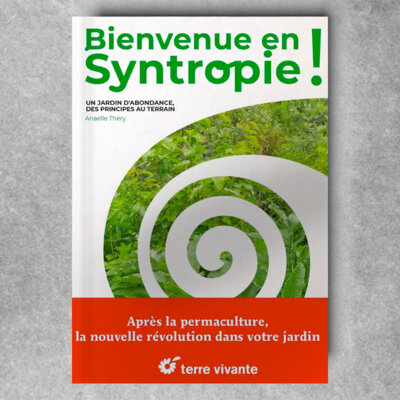
Welcome to syntropy
The first book available in French on syntropy, an agroecological practice based on the production of biomass and the creation of microclimates in cultivated spaces, providing resistance to extremes of heat, exponential soil improvement and drastically reduced water requirements. Based on the field experiments of a pioneer of syntropy in France, it provides methods adapted to our latitudes for vegetable gardening, market gardening, the cultivation of berries and fruit trees, and wood production. A hopeful response to global warming!
Unlike conventional agronomic practices, which tend to simplify ecosystems, syntropy relies on biomass accumulation processes to establish or restore soil fertility. It is based on what might be called extremely dense and diversified associated crops, which follow one another over time: plants are sown and planted at the same time, which will yield in three months (vegetables), two years (berries), 10 years (fruit trees), 15 years (firewood) or even 250 years (timber). Initiated in Brazil by Ernst Götsch over 40 years ago, syntropy is now emerging in France, notably under the leadership of Anaëlle Théry, who has been conducting experiments in the Dordogne over the past few years to adapt its principles to our latitudes.
Anaëlle Thery - Terre vivante - 160 pages






